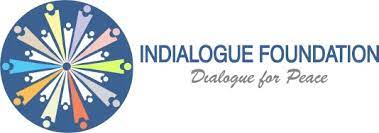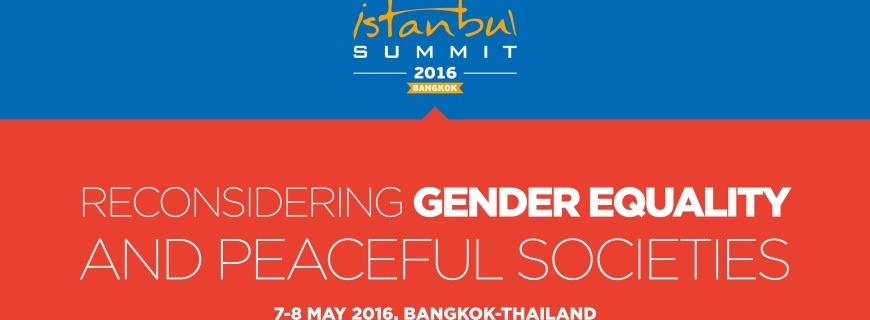BACKGROUND
Sustainable Development, which aims to address pressing environmental, social and economic issues such as climate change, poverty and inequality among others, has become a central concern for the global community starting with the publication of Brundtland Report of World Commission on Environment and Development (WCED) in 1983. Since then, sustainable development has become a priority in the global arena in key international institutions such as the United Nations (UN) and the World Bank and has informed the development agenda of the UN. However, there has been an increasing awareness of the link between sustainable development and peace more recently. Because problems sustainable development agenda aims to address are often key triggers and underlying causes in many international and civil conflicts today.1 International summits such as Rio+20 and UN Summit to adopt the Post-2015 Development Agenda include issues related to the connection between peace, security and sustainable development as some of the main development goals to be address until 2030.
Within this context, particular attention must to be given to women’s concerns related to peace, security and sustainable development as it is increasingly becoming evident that the empowerment and active involvement of women is a crucial prerequisite to successful and sustainable development and peacebuilding efforts. Empirical evidence shows that conflict and war effect girls and women differently than boys and men. Women and children account for the vast majority of those adversely affected by armed conflict as refugees and internally displaced persons. They are increasingly targeted by combatants and armed groups, and suffer incredibly horrific atrocities and injustices such as torture, forced pregnancy, abduction and sexual abuse and slavery. As a result of the conflict and violence, women usually become heads of households, responsible for taking care of the children and elderly alone and become sole breadwinners struggling to find water, food and shelter for their dependents. The long-term effects of war and culture of violence also adversely affect women as social fragmentation undermines networks of support and weakened institutions and law renders them vulnerable to continued abuse and neglect. Women often face threats from not only combatants but also criminals and family members. Destroyed infrastructure make it even more difficult for women to take care of their families even after the conflict subsides.
Traditionally, women have been looked upon as victims of conflict; the passive and periphery recipients of development initiatives. In reality, however, women in conflict zones, such as in Nigeria, Somalia, Syria, Iraq and Afghanistan, have shown incredible resilience and have overcome significant challenges. They have become breadwinners and have taken on new roles in their social and economic lives. In many instances, women have actively played a role in reducing violence and working towards a just and equitable resolution of conflicts. As such, women have come to reposition themselves as an active shaping force of the peace and development agenda, women are now crucial agents in the formal and informal sphere of peacebuilding.
While conflict and war may alter the traditional gender roles and create new opportunities for women to become more mobile and have new resources and roles in their communities, mechanisms that address women’s needs are often absent or underdeveloped. Women’s unique needs such as physical and economic security, psychosocial and health care, among others are largely neglected. They rarely have the same resources, political rights, authority or control over their environment that men do.
Addressing women’s needs, recognizing the important role women play in the prevention and resolution of conflicts, stressing the importance of their equal participation and engagement in all efforts for the maintenance and promotion of peace and security is a prerequisite to successful and sustainable peacebuilding efforts.
Recognizing this fact, many CSOs and UN have taken steps to address women’s needs and empower and encourage active involvement of women in preventing and resolving conflicts. For example, United Nations Security Council Resolution (UNSCR) 1325, adopted in 2000 (and was followed by six additional Resolutions 1820, 1888, 1889, 1960, 2106 and 2122) recognize the disproportionate impact that war and conflicts have on women and children, and highlight the fact that women have been historically left out of peace processes and stabilization efforts. These Resolutions call for full and equal participation of women at all levels in issues ranging from early conflict prevention to post-conflict reconstruction, peace and security.
Increasingly, CSOs’ and Women’s peace coalitions have grown in strength and have been able to put women’s concerns on the agenda of peace talks successfully. Today, the protection of women and girls from sexual and gender-based violence is recognized to be a priority challenge for humanitarian and peacekeeping practice and transitional justice mechanisms are increasingly responding to war crimes against women with more overt attention to the ways conflict affects women and with specific arrangements to protect women witnesses.
Despite these efforts, implementation of these resolutions and addressing the needs of women has been slow. Arrangements of women’s security and survival needs are inadequate or absent rates of indictments and convictions for war crimes against women are still very low and reparation programs for women victims and communities are rare, economic and political opportunities for women are still lacking in many contexts. Although conflict-related sexual violence has been recognized as a ‘war tactic’ that threatens international peace and security and has been elevated to a place on the mainstream peace and security policy agenda practical and tactical responses are still lagging behind. There are no international mechanisms to ensure implementation of WPS resolutions as their implementation lies mainly with UN Member States and UN Security council can only encourage Member states and various stakeholders such as local, regional and international civil society organizations and networks to develop national plans and develop mechanisms to monitor their implementation (UN Women Sourcebook on Women, Peace and Security 2012).
OVERVIEW
Istanbul Summit 2016 will be held by the Journalists and Writers Foundation, with its Women’s Platform, on 7-8 May, 2016 in Bangkok, Thailand in partnership with Thailand Achievement Institute.
Indialogue Foundation is an official partner institute from India
The topics of the sessions:
- Setting the Framework: (Linking) Sustainable Development and Promotion of Peace
- Gender Equality and Empowerment of Women and Girls
- Women, Peace and Security
- Parliamentary Session: Women’s Empowerment and Gender Equality: Next-Steps
Discussions during sessions will take into account the following cross-cutting themes:
- Defining peaceful societies in the context of sustainable development
- Centrality of Inclusion in promoting peaceful societies
- Good governance and rule of law at the national and international levels, and equal access to justice for all
- Strengthening national and international institutions, through cooperation, for capacity building at all levels to prevent violence and combating terrorism and crime
- Women’s full and effective participation in leadership at all levels of decision-making in public life
- Economic Opportunities and Empowerment of women
- Women’s Equal Access to Health Care and Education
- Reviewing and strengthening policies and enforceable legislation for the promotion of gender equality and the empowerment of all women and girls at all levels
- Protection of the Rights of Women in Conflict and Elimination all forms of violence against all women and girls in public and private spheres, including trafficking and sexual and other types of exploitation
- Women’s diverse post-conflict needs, both urgent and long-term
- Reparation for victims of violence and healing
- Women’s participation and representation in various aspects of conflict prevention, conflict resolution and peace building
- Women’s Full and Effective Participation and Equal Opportunities for Leadership
- Elimination of All Forms of Violence Against All Women And Girls
- Good Governance and the Rule of Law
- Protection and Promotion of the Rights of Women in Conflict
- Women’s Participation and Representation in Various Aspects of Conflict Prevention and Resolution
- How can we promote women’s full and effective participation and equal opportunities for leadership?
- What are the Economic, healthcare and education needs of women in conflict situations
- What specific roles women can play in elimination of all forms of violence against women and girls?
- What measures do we need to take in order to address the urgent needs of women in conflict?
Istanbul Summit is open to all CSO representatives, academics, specialists and journalists. For those wishing to attend please register to a session of interest at http://www.istanbulsummit.org/index.php/registration.
Registration Fee: $100 registration fee covers opening ceremony and sessions attendance, lunches, break refreshments and Cruise event. Registration fee does not cover transportation expenses or hotel accommodations.
The working language will be English. There will be simultaneous interpretation to Thai on the opening & closing ceremonies and sessions. Please note that working groups will be solely in English.
Participants will be responsible for their own transportation.
Generally, a foreign citizen who wishes to enter the Kingdom of Thailand is required to obtain a visa from a Royal Thai Embassy or a Royal Thai Consulate-General. However, nationals of certain countries do not require a visa if they meet visa exemption requirements. Please check the http://www.immigration.go.th/nov2004/en/base.php?page=visa to know about your visa requirement.
For more details and inquiries contact info@indialogue.in
You can find some useful information about Bangkok and Thailand at this page.
Click to download Istanbul_Summit_2016_Concept_Note
Click to download Istanbul Summit Report 2015
Page Hits–624

